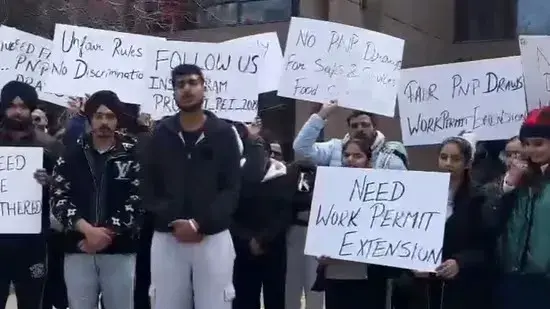Canada Tightens Permits for International Students and Foreign Workers Amid Immigration Reform
In a bid to reduce the number of temporary residents in Canada, the government announced further cuts to study permits for international students and stricter eligibility criteria for work permits. This move comes as Prime Minister Justin Trudeau’s Liberal government faces growing public dissatisfaction and a challenging political climate ahead of the 2025 federal election. The government aims to bring down the number of temporary residents to 5% of the total population, down from 6.8% in April 2023. Immigration Minister Marc Miller stated, “Not everyone who wants to come to Canada will be able to—just like not everyone who wants to stay in Canada will be able to.” The changes will reduce the number of study permits issued to international students, capping them at 437,000 by 2025, compared to the 509,390 granted in 2023. The reforms will also limit work permit eligibility for spouses of certain students and temporary foreign workers. Canada’s decision follows a rise in public concern over immigration’s impact on issues like affordable housing and the cost of living, despite post-pandemic inflation returning to the Bank of Canada’s 2% target in August. Critics argue that blaming migrants for economic challenges oversimplifies the situation, while anti-immigration sentiment grows. In addition to cutting study permits, the government is reviewing visa integrity measures and tightening the process for detecting non-genuine visitors. Earlier this month, Canada scaled back 2022 expansions to the temporary foreign worker program, including reducing the share of low-wage workers employers can hire. As the federal government pulls back on temporary immigration, debates about Canada’s migration policies are expected to intensify, with immigration reform becoming a key political issue in the lead-up to the next election. Source: NDTV


